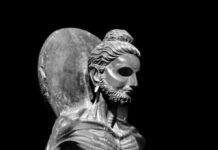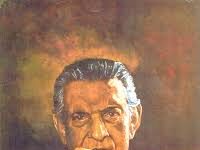In all my conversations about reading and literature, I have been saying that a sense of pride and ego is necessary for those who engage in it. One thing that has been instilled in all of us in Tamil society is that ‘humility is the highest virtue.’ The more humility we show, the more we are widely believed to be good. Therefore, an environment has developed only in Tamil Nadu, where even thinkers and writers discuss thinking and writing as inferior while demonstrating their humility, which is not found anywhere else in the world.
Here, if a philosopher says, ‘I am nothing; philosophical thinking is possible for everyone; there is no difference between a philosopher and a commoner,’ then only will he be respected as a true scholar by the laypeople here. Because he is humble!.
Strangely, people here do not expect humility from a rich person, nor do they expect it from someone in power. If a rich man goes to an event with fifty people in ten cars, no one is bothered by that display of shamelessness. Everyone here celebrates an ordinary politician who, wherever he goes, stands like a king with a retinue of fifty servants. In fact, our tradition only discusses the humility that comes with wealth and power. The pride of knowledge known as “Vidyakarvam,” on the other hand, is what the wise ought to possess.
In Tamil Nadu, we have interpreted this concept in a unique way. In the eyes of the common people of Tamil Nadu, power and money are actually the things that are worthy of pride, and knowledge is of no value. Therefore, the wise person should show that lack of value in himself and become humble. The common people think that the rich are naturally arrogant, and they are too. Accepting this foolishness, our writers and those who call themselves thinkers are establishing fake humility everywhere.
In this context, I am talking about the pride and self-respect that a reader should have today. Because today in Tamil Nadu, a person who reads a book is one in a million. There is a large group of people around him who hate books and think that they are completely useless. The pressure on a person who stands alone in a society is extremely high. Most book readers in Tamil Nadu have to read books secretly. I know people who keep their book-reading habit hidden within their families. In this context, if someone shows humility about reading books, everyone around them will jump on him and ruin his reading.
First, a reader must take pride in being unique and belonging to the intellectual community within this shallow Tamil environment. If he does not have that pride, he will give up reading over time. Unless he has the self-respect to say everywhere, “Yes, I am a reader, and I am better than you,” one cannot function in our society. There is nothing wrong with someone expressing that intellectual activity as a transgression and declaring it boldly. That arrogance will save him from the general attitude against reading and thinking that surrounds him and from the silly people who continue to express it without shame.
If a person who reads wants his children to get into reading, he should instill the same pride in those children. If a boy can confidently declare to his friends, “I am a literary reader.I am an intellectual seeker. Therefore, I believe I am one step above all of you,” he can continue to read. Perhaps he can even bring at least a few of his friends into reading. On the contrary, if a boy hides his reading with shame, if his friends are allowed to ridicule him, then over time he is likely to lose the reading habit. He might become engrossed in the trivial online games and social networking activities common to all boys.
Today, we need to cultivate and harvest the rarest herb in the Tamil environment: pride of knowledge.












